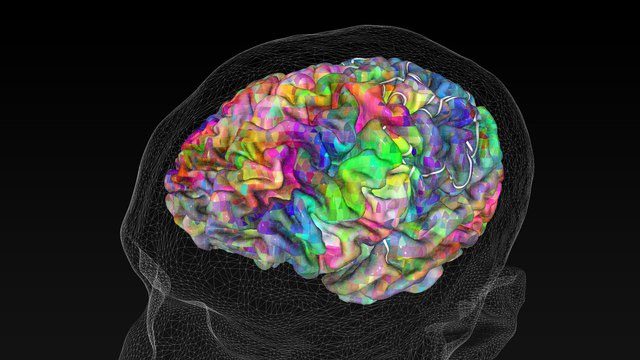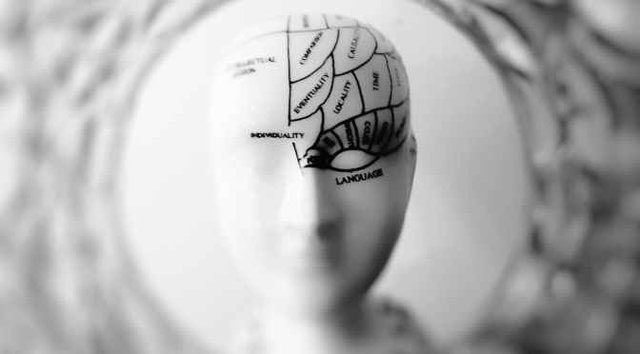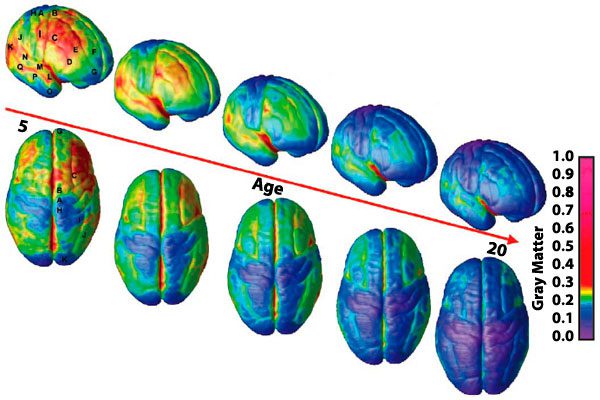There is a popular belief that by the age of 25, individuals have truly matured in a comprehensive way.
It is often remarked that being under 25 is considered the “youthful” age for women. A long-standing rumor has resurfaced, claiming that 25 is precisely the age when our brains have fully developed.
The “Sanctification” of the Number 25
In the past decade, there has been a scientific belief that age 25 marks the point when the human brain is “fully developed” or “mature.” This assertion has been used to explain a variety of phenomena. After the age of 25, learning becomes more challenging, and the brain’s ability to manage risks and plan for the long term is said to reach its peak at this age. Some sources even advise people against getting married before this milestone.

There is a belief that age 25 marks the age when the brain is most complete.
Some young individuals consider 25 to be a pivotal age with seemingly magical characteristics. In a discussion on Reddit, a 24-year-old asked older users, perhaps wiser ones, if they noticed any changes after turning 25, leading to a lively debate.
So, what happens to your brain at 25? And how did so many people come to believe that something profound occurs at this specific age? Neuroscientific research over the past two decades provides some clues.
Scientific Refutation
Structurally, researchers have found that as children grow, the prefrontal cortex, the area of the brain responsible for cognitive control, undergoes physical changes. Notably, they discovered that white matter – the bundles of nerve fibers that facilitate communication between different brain regions – increases in size, indicating enhanced learning capabilities.
They also found important clues regarding brain function. For instance, a 2016 study showed that when faced with negative emotions, individuals aged 18 to 21 exhibited brain activity in the prefrontal cortex that resembled that of adolescents rather than adults over 21. Alexandra Cohen, the lead author of the study and now a neuroscientist at Emory University, stated that brain development continues into a person’s 20s.

She commented: “I don’t think anything magical happens at age 25. Honestly, I don’t understand why people pick the number 25. Is it because it just sounds nice?”
Kate Mills, a neuroscientist at the University of Oregon, also dismisses the significance of 25: “This is funny to me. I don’t know why it’s 25. We don’t have research to actually say that the brain matures at 25 because we haven’t even agreed on what ‘mature brain’ means.”
Maturity is a complex concept, especially in neuroscience. A banana may be ripe or unripe, but there is no single measure to determine human maturity. However, in many studies, neuroscientists define maturity as the point at which changes in the brain stabilize.

This means that for some individuals, changes in the prefrontal cortex may indeed stabilize around age 25, but this is not the case for everyone. Moreover, the prefrontal cortex is only one area of the brain; researchers focus on it because it plays a crucial role in coordinating “higher thinking.” However, other parts of the brain are also essential for complex behaviors like decision-making. The temporal lobe helps process the speech and language of others so that you can understand what is happening, while the occipital lobe allows you to track social signals.
According to a 2016 article by Harvard psychologist Leah Somerville, the structures of these brain regions and other areas change at different rates throughout our lives. They can continuously grow and shrink throughout life. In fact, structural changes in the brain continue even after a person reaches their 20s.
She wrote: “One study shows that for some brain regions, the structural growth curves are not stable even in the 30s. Other studies focusing on structural brain measurements throughout adulthood indicate that changes in volume progress from ages 15 to 90 never ‘stop’ and instead continuously change throughout the course of adulthood.”
All of this means that people’s brains can look very different at age 25, and the belief that “people only mature after the age of 25” is more a fictional product of popular culture than a scientific fact.


















































